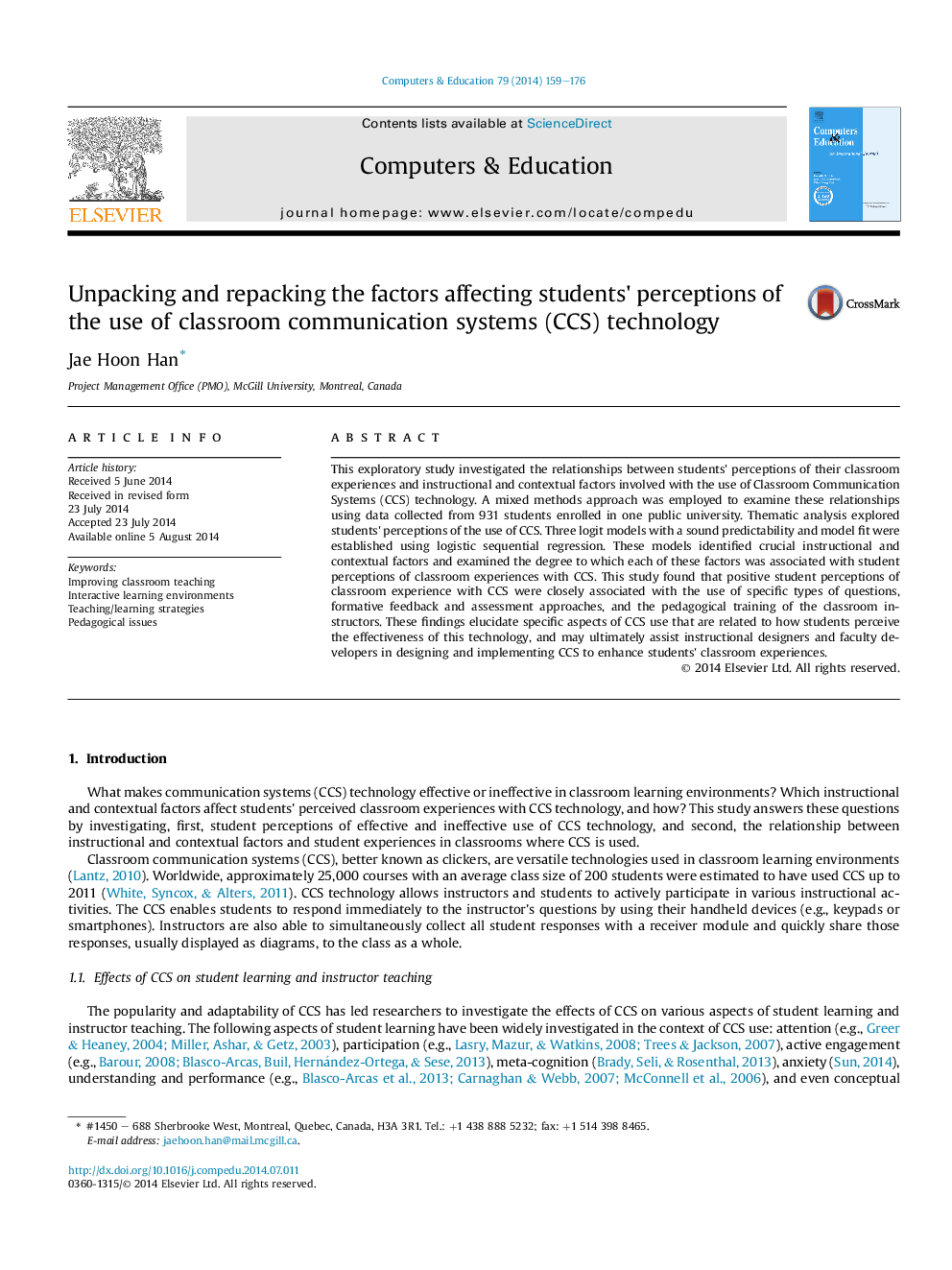| Article ID | Journal | Published Year | Pages | File Type |
|---|---|---|---|---|
| 348395 | Computers & Education | 2014 | 18 Pages |
•A Mixed methods embedded with thematic and logistic regression analyses were used.•Instructors' pedagogical training was identified as the most important factor.•Instructors' clicker questions were related to students' positive experiences.•Clicker's reliability and affordability were identified as negative factors.
This exploratory study investigated the relationships between students' perceptions of their classroom experiences and instructional and contextual factors involved with the use of Classroom Communication Systems (CCS) technology. A mixed methods approach was employed to examine these relationships using data collected from 931 students enrolled in one public university. Thematic analysis explored students' perceptions of the use of CCS. Three logit models with a sound predictability and model fit were established using logistic sequential regression. These models identified crucial instructional and contextual factors and examined the degree to which each of these factors was associated with student perceptions of classroom experiences with CCS. This study found that positive student perceptions of classroom experience with CCS were closely associated with the use of specific types of questions, formative feedback and assessment approaches, and the pedagogical training of the classroom instructors. These findings elucidate specific aspects of CCS use that are related to how students perceive the effectiveness of this technology, and may ultimately assist instructional designers and faculty developers in designing and implementing CCS to enhance students' classroom experiences.
